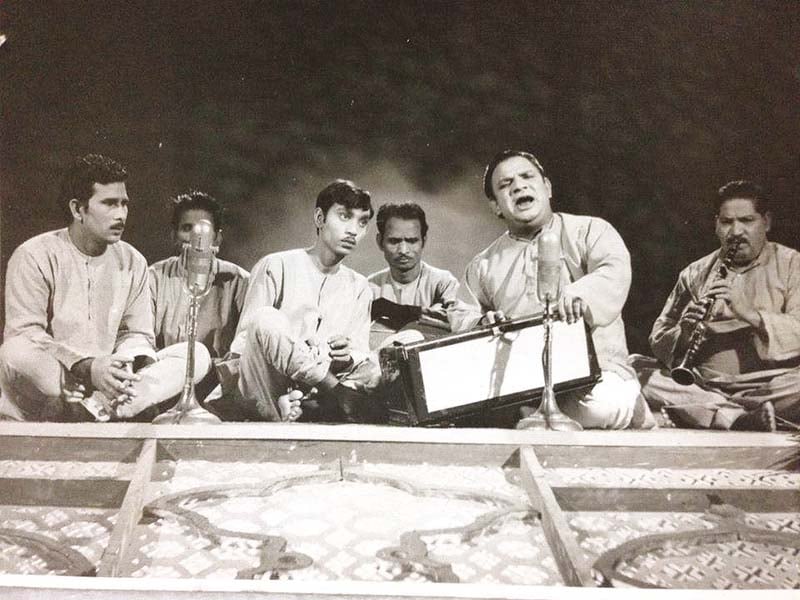
The legendary singer belted out multiple hits in his more than five-decade long career, with Main Sharabi Sharabi and Tari Surat Nighaoun Main Phirti being the most popular. His death anniversary was celebrated in Multan on Tuesday, at an event hosted by his dear colleagues and family members. “Young qawwals of today always look up to the work of Nusrat Fateh Ali Khan, Amjad Sabri and Aziz Mian. However, Aziz was the most different of them. He was talented and very educated and introduced his own style. Each of his qawwalis was different from the other and that’s what was most entertaining,” said the musician brother duo Sher Ali and Mehr Ali. “He never copied anyone but everyone copied him. He made our nation proud and today we are really missing him because he was truly a legend.”

Known as one of the most famous qawwals of South Asia, Aziz started training in the field when he was just 10 years old, under the supervision of Ustad Abdul Wahid Khan. He studied from Lahore Data Ganj Baksh School and later did his postgraduate in Urdu Literature, Persian and Arabic from Punjab University. Interestingly, his style of singing was different from other qawwals. He merged qawwali with his own poetry and the works of other poets such as Allama Iqbal and Qateel Shifai. “Besides qawwali, his poetry was thoroughly enjoyed by everyone. He narrated romantic poetry in his own style and I can confidently say there can be no one in the world like Aziz Mian,” said folk singer Shoukat Ali.
Aziz breathed his last 16 years ago in Tehran, where he was invited by the government to perform at a concert. Sadly, a day before the event, he passed away and his body had to be flown back to his hometown, Multan, where he was buried. Ironically, Aziz died in the same country where he rose to fame and became recognised internationally, after being awarded a gold medal from the then Shah of Iran, Mohammad Reza Pahlavi. “Aziz Mian’s work was enriched with spiritualism. Wherever he performed, he was known to be an expert at keeping the audience entertained and everyone appreciated his verses. His work was an asset to our country,” added Ali. He was also given the Pride of Performance from the Government of Pakistan in 1989.
Recordings of his songs such as Allah Hi Jane Kaun Bashar Hai and Nabi Nabi Yaa Nabi Nabi are still available in many qawwali libraries today. “His unique style of singing while performing harmonium was wonderful and he performed in many other countries besides Iran,” mentioned Ali.
Three of his sons – Tabraiz, Imran and Junaid – are qawwals and have tried to follow his style through their performances but there’s no denying that no one can produce the kind of work Aziz did.
Published in The Express Tribune, December 7th, 2016.
Like Life & Style on Facebook, follow @ETLifeandStyle on Twitter for the latest in fashion, gossip and entertainment.

1730948380-0/Kamala-(1)1730948380-0-165x106.webp)















COMMENTS
Comments are moderated and generally will be posted if they are on-topic and not abusive.
For more information, please see our Comments FAQ